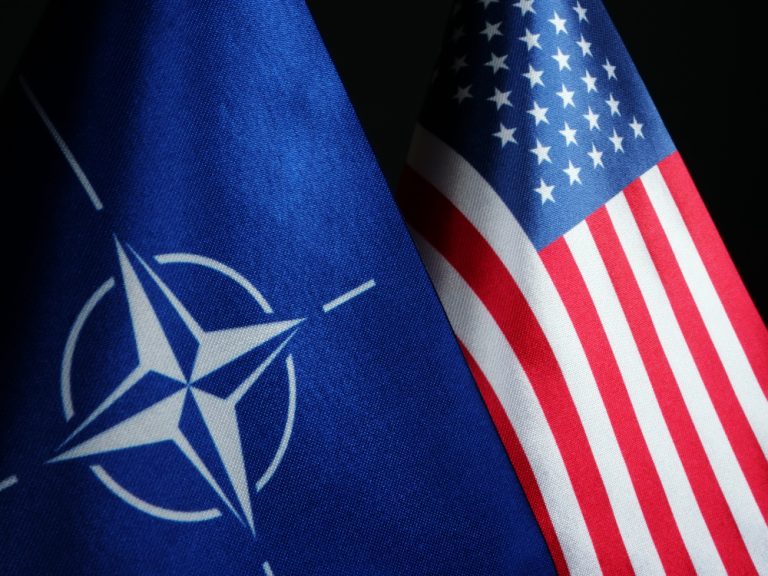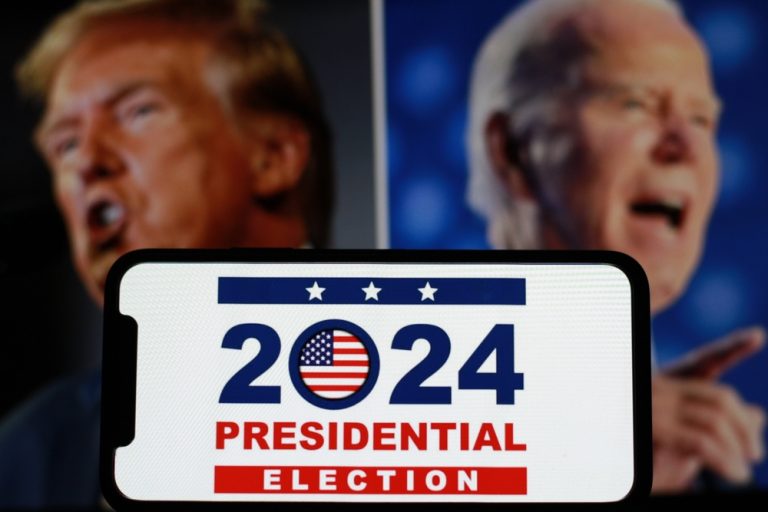
The White House’s legal war with Donald Trump is escalating again
The judicial war that the White House has declared on Donald Trump has been turning into a string of good news for the former president lately. Back in early February, hearings on the federal investigations against Trump were postponed indefinitely, and lawyers managed to accomplish this by filing a lawsuit to recognize Trump’s presidential immunity. At the time, it was not certain that the Supreme Court would side with Trump, but there was a chance that it would slow down all the litigation, and after the election, if Trump won, he could pardon himself. Against this backdrop, on February 5, the U.S. Court of Appeals for the District of Columbia Circuit quite expectedly ruled that Trump lacked presidential immunity in the January 6 Capitol storming case. But Trump’s lawyers had planned to appeal to the Supreme Court. Trump and his lawyers have interpreted the issue of presidential immunity very broadly, believing that everything the U.S. leader does in the public sphere falls under it. This has caused the justices to be skeptical, and Trump’s lawyers have even been asked whether immunity then also applies to the president’s decision to send in Special Forces to eliminate his election opponents. That suggested troubling thoughts that Trump might not be able to win at the Supreme Court either. But his goal was to delay the four criminal cases against him with this lawsuit, because as long as the justices argued about presidential immunity, all the cases against Trump would be frozen. The Supreme Court could have debated presidential immunity until the end of its session in June, and even if it didn’t side with Trump, it would have played into his hands. Then the criminal hearings would have been postponed until the summer and fall, and Democratic prosecutors would not have been able to secure a guilty verdict against Trump before the election in November. Well after the election, if Trump had won, he would have had opportunities to fight back. For example, deprive prosecutors of federal funding through the Justice Department, or, as a last resort, as we wrote above, simply to drop all charges. The main thing for him was to avoid arrest before the election, and Trump’s lawyers planned to deal with that, having both experience and good funding.

Already on February 7, the first hearings on Trump’s electoral eligibility case were held at the main U.S. legal body. They gave cause for optimism to Trump’s lawyers, who had hoped to quickly get rid of lower court decisions to remove Trump from the Colorado election. Republican judge and Trump appointee Brett Kavanaugh questioned the characterization of the January 6 storming of the Capitol as a “riot” against American democracy. After all, Trump is trying to be accused of sedition and be removed from the election on that basis, and Trump’s lawyers have emphasized that the Capitol storming was spontaneous and resembled a spontaneous popular revolt. The stance of the liberal justices came as a surprise, with Elena Kagan voicing her displeasure that one state, Colorado, wants to decide for all of America whether or not to allow presidential candidates into the election. Her partner, Biden appointee Ketanji Brown Jackson, questioned whether the sedition clause applies to U.S. presidents. The Supreme Court had until the end of February to decide on Trump’s admission, and it would likely be in his favor. Trump himself hoped to get the Supreme Court to recognize his presidential immunity in parallel. Even if he lost, it would allow him to slow down the criminal trials against Trump. Trump’s staff saw the light at the end of the tunnel: ratings were rising at the time, Biden was doing worse, and the legal woes were being dealt with. In most swing states, Trump is already consistently beating Biden, and the Democrats are desperate.
Attempts to defund Trump continue in his home state as well. Another civil suit against Trump ended with a whopping $360 million fine. And earlier, Trump was also slapped with another $80 million fine. In this case, it was allegations of inflating the value of real estate in order to obtain loans against its collateral. The decision is unprecedented, and it could force Trump to sell some of his assets, although the former president’s lawyers have appealed. The legal war with Trump threatens to add problems for New York City. A humanitarian crisis is already raging there because of the influx of migrants, and crime rates are off the charts. But local prosecutors are more focused on trying to sue Trump, and the court’s decision will surely lead to an exodus of business from New York, which, following Trump is relocating to Florida. New York’s population, despite the influx of illegals, is already shrinking. On March 25, hearings on the criminal case of paying money to a porn actress in New York City also started. Democrats are trying to intimidate Trump and bankrupt him with legal expenses, and he already has to spend more money on lawyers than on campaigning. Yet Trump continues to outperform Biden in the latest polls, as does Kamala Harris, who they’re trying to make the face of the Biden campaign since the old man is doing quite badly. Well, of course, these processes finally discredit the justice system in the eyes of half of America, which is on the verge of splitting amid the politicization of its poles.
The first to react to the trial in New York were truckers, who are overwhelmingly Trump supporters. The truckers started a protest campaign, refusing to bring cargo to New York. And they provide 75% of all logistics in the U.S. In fact, we could be talking about a repeat of the Canadian truckers’ riot in early 2022, when they paralyzed the entire country protesting quarantines. And without a constant supply of goods and food, any liberal metropolis would descend into chaos and mayhem in 3-4 days. New York’s crime rate is already off the charts, and local progressive prosecutors are commuting sentences for the 60% of criminals who are members of “oppressed” minorities. But it’s also where they try to sue “enemies of the people” like Trump, who for the first time in New York history was given a huge $360 million dollar fine, in a case where there weren’t even any victims. Trump will apparently have to get rid of his assets in New York. Trump supporters have already urged local businesses to follow his lead and move to Texas or Florida. The situation in New York will only get worse due to migrants and crime. In the polls, Trump was at that point beating both Biden and his potential replacements like Harris or Newsom, and in the primaries, Trump’s approval rating reached 80%. He is consolidating all of Republican America around him and, de facto, declaring war on Democratic America, which, without Trump’s supporters in the form of truckers, oil workers or laborers, simply cannot exist.

Immediately afterward, Trump was threatened with forfeiture of his New York City properties, including the Trump Tower skyscraper, within 25 days unless he paid a $360 million fine. Trump was simultaneously trying to both ruin himself with legal expenses and finally get squeezed out of New York. He has already moved to Florida, and is urging all of his supporters to leave New York, but there is still his property there for now, which will be systematically squeezed away. Meanwhile, the migrant crisis is escalating in New York, and illegals are even picking fights with police in overcrowded detention centers. Real crime is not particularly fought, organizing repression only against “far-right enemies of democracy”. And during Trump’s trial in New York, Venezuela’s largest crime syndicate, Tren de Aragua, became more active. It is involved in street crime and fights with the police, and Caracas is only happy to get rid of its criminals, who were simply deported to shake up the situation in the United States. Migrants have started getting tens of thousands of dollars in welfare, even though NYC’s budget has a hole in it, and they even have to cut police. The war with Trump is also an opportunity for city leaders to find money for migrants. Moreover, they may start housing illegals in his skyscraper, and he is right to cut all ties with New York.
Back to the immunity suit, Trump won an interim court victory in late February. His lawyers persuaded the Supreme Court to consider Trump’s claim of presidential immunity in a way that would simply cover all criminal cases against Trump. Trump’s lawyers interpret the immunity issue very broadly, and during the hearing they even admitted that if the president sends in a SWAT team to eliminate his opponent, that would fall under immunity as well. It’s unlikely that the Supreme Court, even with conservative justices, sided with them. But the lawsuit will be heard for a long time and even in the best-case scenario for Democrats, until the end of June. And for that time, criminal trials against Trump are frozen. Accordingly, the likelihood that he will get a verdict before the election is reduced, and after the election, if he wins, he will pardon himself. However, in the end, Trump triumphed and on March 3, the U.S. Supreme Court unanimously sided with the former president and overturned the Colorado court’s decision to prevent the candidate from being allowed to run for office. Trump was accused of allegedly violating the 14th Amendment to the U.S. Constitution on sedition for storming the Capitol. Crucially, the verdict was unanimous. Not only six conservative justices, but also three liberal justices were outraged by the Democratic Party’s attempts to remove Trump from the election.
Now it’s easier for Trump to portray himself as a victim of political persecution. The case had nothing to do with the law from the beginning. Trump did not storm the Capitol, but rather, he urged supporters not to use violence. That storming in and of itself certainly doesn’t amount to a real riot. Not to mention the constitutional crisis that could occur if the favorite in the presidential race, who is ahead of the incumbent in the White House, is removed from the election. The Supreme Court has upheld the right of states to keep candidates off the ballot at the local level, but not at the federal level. Trump’s lawyers will now be able to use the announced verdict to reinstate his candidacy in Maine and Illinois, where there were also attempts to keep him out of the primaries. And importantly, Trump’s lawsuit to recognize presidential immunity is being heard in parallel at the Supreme Court, which now has a higher chance of similar success for a Republican. This could allow all criminal trials against Trump to be frozen. All in all, Trump’s staff has been able to fend off legal attacks. And that makes the Democrats’ situation quite desperate, because they simply don’t know how else to hold onto power and not lose in November. The Supreme Court’s unanimous ruling in favor of Trump to allow him to run literally shocked Democrats. Trump’s opponents in Congress immediately rushed to draft their own bill to try to sneak a decision to remove Trump from the election at the federal level. This, however, was already an act of desperation. The Democrats don’t control the House of Representatives, and they won’t be able to pass anything. And the Colorado secretary of state cried on live TV and began urging voters to “save American democracy” and not vote for Trump. However, this epitomizes America’s acute division. The Supreme Court justices, after the verdict was announced, urged the country to “lower the degree” of national strife, also for the sake of preserving democracy. But the heat of the controversy will only intensify closer to the election, and the White House and Trump’s court wars will not stop either.

